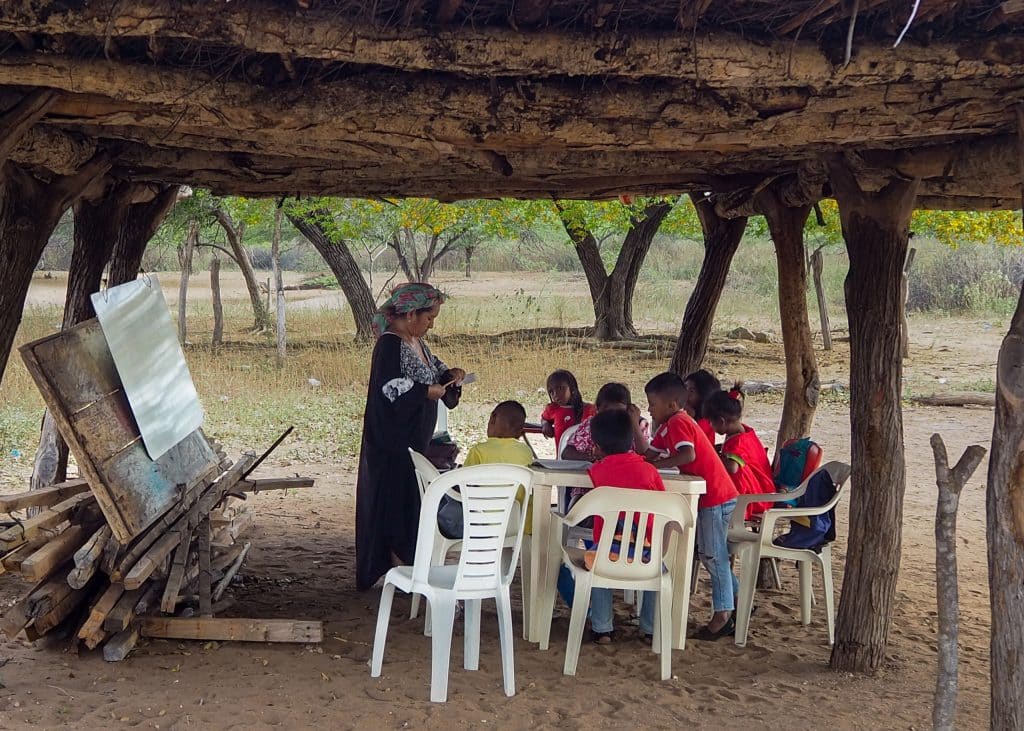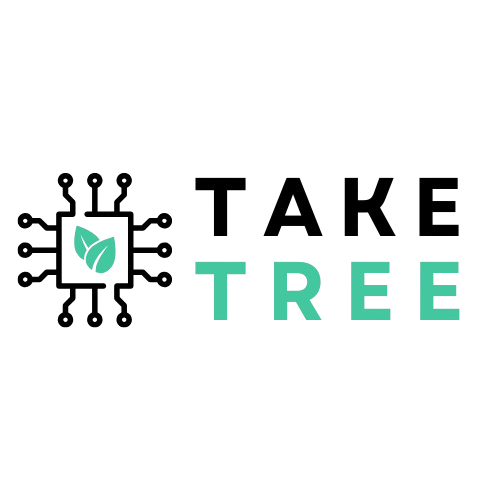In some parts of the world, climate change litigation has become fairly popular. Some people view this strategy as a tool to achieve climate action as the need to enforce climate goals from governments and businesses grows. Only transition litigation, which is related to society’s energy transition away from fossil fuels and the equitable distribution of the benefits and burdens resulting from it, has lately emerged as a particular type of climate change litigation.
—
Climate change has already occurred. That is a verifiable fact that is supported by the numerous medical studies that have been conducted as well as the effects that are currently occurring in many areas, such as longer heatwaves, ice loss, wildfires and droughts. Governments have pledged to implement measures to combat climate change and to adopt more ambitious decarbonization plans in response to various commitments made regarding the climate crisis since the 1990s. International agreements, like the 2015 Paris Agreement, for example, achieved widespread agreement that humanity must immediately address the issue in order to stop the global average temperature from rising past 2C and, essentially, staying below 1.5C compared to pre-industrial levels.  ,
Discontent among the populace has increased as a result of these climate goals and commitments never being carried out as promised, as well as governments and businesses being aware of what needs to be done. In recent years, a trend toward climate litigation has emerged in response to these major players ‘ inaction, with the goal of holding governments and the private sector responsible for failing to carry out the pledged plans, policies, and legislation.  ,
Despite pledges to phase out subsidies, G20 Countries Invested More Than$ 1tn in Fossil Fuels in 2022: Report
What Is the Cause of Climate Change?
Climate change litigation refers to cases brought before criminal or quasi-judicial entities, such as administrative tribunals, operational bodies, and regional human rights institutions, that raise material questions about laws, policies, or facts related to climate change mitigation, adaptation,, science, according to the Sabin Center for Climate Change Law and the Grantham Research Institute on climate Change and Environment. This means that if governments and private sector organizations are not achieving the climate goals, people can challenge them to do so.  ,
The 2015 Urgenda Foundation v. State of the Netherlands  decision, which was the first known instance in which a government was found to be in charge of reducing greenhouse gas ( GHG ) emissions, and the 2023 Holdevs. Montana case, brought by 16 young people who claimed that the government had violated their right to an environment that was clean and healthy as well as an established climate system, are two notable examples that garnered international attention. The US legal climate lawsuit in question has been designated as the first to go to trial in this case.
How the Landmark Montana Climate Trial Helped Young Climate Activists Learn More About the Subject
The more sophisticated and developed climate litigation becomes as newer and more difficult claims progress through courts and tribunals. Transition litigation, which includes cases that challenge climate policies and plans but focuses mostly on how the energy transition towards a society away from fossil fuels should be accomplished, enters the climate litigation spectrum at this point.
The idea of” Just Transition”
In North America, the concept of a” only transition” started to gain traction in the 1980s and 1990s as stricter environmental regulations against water and air pollution rose. Workers ‘ unions began to shape the idea in this context, first seeing it as a program to help workers who had lost their jobs as result of these economic protectionist policies. Eventually, the idea developed and was incorporated as a deliberate effort to create and fund the transition to jobs, industries, and economies that are socially and economically responsible. Today, the idea of a fair transition is connected to global climate change initiatives, especially the energy transition required to achieve decarbonized society.
According to this viewpoint, transition litigation is defined as a type of litigation that examines how the benefits and burdens of transition policies and activities that seek net-zero and climate-resilient societies, among local communities and disturbed stakeholders, are distributed. It includes cases involving, among other things, labor rights for workers in the fossil fuel industry, the defense of communities impacted by decarbonization policies and projects, and the opposition to fresh subsidies for projects to extract geological energy.  ,
These cases are frequently viewed as “anti-climate,” or as cases that contest the energy transition away from fossil fuels, which is an exciting peculiarity. However, the goal of only transition litigation is to make the energy transition a just one rather than to halt or obstruct it. In order to significantly separate this novel decarbonized society from the traditional inequality that has characterized the growth of the energy sector, it seeks to pursue equality in the development of this society. The goal of only transition litigation is to make sure that this social and environmental change is successful in achieving fair and equal development for all society members while taking into account the protection of environmental and human rights.
How Can Transition Litigation Achieve a More Really Society?
It is acceptable to assume that such a significant change will have an impact on some people’s livelihoods because everyone agreed in the Paris Agreement that an energy transition away from fossil fuels and the transition towards decarbonized economies is necessary. These conditions force society to properly consider how this transformation will be implemented in order to have the least negative effects on the environment and people’s lives.  ,
This is acknowledged by the Paris Agreement itself in its preamble, which emphasizes the need to retrain the workforce and produce wonderful, high-quality work in accordance with the member countries’ development objectives. A really transition, according to organizations like the International Trade Union Confederation’s Centre for Only Transition, also guarantees environmental sustainability, decent employment, social inclusion, and the eradication of poverty.  ,
It is possible to understand the importance of implementing decarbonization policies and plans through a fair transition in this context, and it is also more obvious why disagreements and legal disputes might occur if its principles are not incorporated into this economic transformation. So, climate change litigation can help achieve the objectives outlined by the ideal of a merely transition. It can also influence how governments and businesses make decisions and put pressure on them to expedite the necessary transition processes.
Simply Transition Litigation Cases and nbsp
1. Chile, 2021
The Peruvian government’s decarbonization policies, which resulted in the closure of two coal-fired power plants, affected the union workers in 2021, so they filed a lawsuit to defend their labor rights. Three union workers who were impacted by the closure filed a lawsuit against the Ministry of Energy in 2021, challenging the 2019 agreement between the Chilean government and energy-related businesses to organize the shutdown of the power plants and begin the energy transition process. A Simply Energy Transition Strategy was even started as a result of this agreement.
The workers claimed that because they were not parties to this agreement, no steps had been taken to safeguard their rights in the wake of the agreement’s closure, which violated their legal rights to legal equality, freedom of association, and property rights.  ,
The plaintiffs were granted a favorable ruling by Chile’s Supreme Court, which also mandated that government officials put into place an action plan to reintegrate affected workers into the labor market and guarantee an equitable energy transition. The court acknowledged that these were crucial measures to carry out the Chilean Decarbonization Plan, but it also acknowledged how crucial a fair transition strategy is for the damaged workers and the communities that lost services due to the plant closures.
The court especially acknowledged simply transition as a requirement for the legality of climate action in this case, and it categorized the lack of consultation as an infraction of the Chilean government’s duty to ensure equitable transition. It is crucial to note that the plaintiffs did certainly challenge the project itself, but rather the lack of options for dealing with the direct effects of the coal plants ‘ decommissioning and their failure to follow the legal requirement of participation.  ,
2.2. 2019 Colombia
The Wayu Indigenous Community vs. the Brazilian Ministry of Environment case is particularly noteworthy because it includes important components of what should be regarded as a fair transition and provides hints as to how these cases will unfold in the future. The Cerrejón Mining Project in La Guajira, which has been in operation since 1983, filed a claim in 2019 aimed at having its economic license revoked. Claimants asserted, among other things, that the environmental licensing process violated a number of environmental rights and provisions, including the right to health and the preservation of the environment, and that it was done without free, prior, or informed consent ( FPIC ).


Plaintiffs argued that before approving projects of this nature, Colombia’s obligations and pledges to combat climate change should be taken into account. By addressing climate change while allowing financial growth based on extractivism, they also emphasized the Brazilian government’s lack of coherence. Additionally, the Wayu community argued that in order to achieve climate justice, environmental protection, and important participation, an energy transition should be made. The issue is also pending resolution. In addition,  ,
Solutions to Deforestation: Maori Communities as Gatekeepers of a Greener Society may also be of interest to you.
3. 3. Mexico, 2018
The Zapoteca indigenous community of Unión Hidalgo in Mexico filed a complaint against Electricité de France ( EDF) in 2018 alleging that the community was not informed or consulted about the project, violating their right to FPIC and consultation. Conflicts among the community’s members were sparked by this situation, which was made worse by the absence of a common process of information and consultation with its members. However, they reasoned that because the community does not profit from the project and the company do not share the electricity produced with the local communities, the majority of which are energy poor, there is not an equal distribution of the benefits produced by the wind farm.
The Zapoteca community received a favorable ruling from Oaxaca’s First Court of District in June 2022, which also mandated that the Mexican Federal Electricity Commission revoke the contracts for the Gunaá Sicar wind park. This decision was” a milestone in the defense of land, territory, and healthy resources for economic and indigenous communities,” according to ProDESC, the NGO assisting the Zapoteca community.
Away from Fossil Fuels in the Future
The examples above show how climate change litigation is changing. More issues pertaining to animal and economic rights, particularly how the energy transition may affect these, will be brought before the courts. It is hoped that the concepts of a really transition become ingrained in the energy transition and that these cases will help us apply the lessons we have learned.  ,
In the past, there has been a lack of inclusion and participation in the development of climate policies and the management of natural resources, which has led to fragmentation between decision-makers and people, particularly vulnerable groups. As a result, there has been poor management and socio-environmental conflict, which has led to inequality, resentment of decision-makers, and frequently ecological harm.  ,
The burdens and benefits of the energy transition can be distributed more fairly if society makes a really transition away from fossil fuels. It calls for increased people involvement in decision-making processes as well as additional measures to ensure equality in the implementation of the policies and projects created for the transition. Governments, civil society, and the private sector should take these issues into account so that the energy transition does n’t leave anyone behind and can proceed without difficulty.  ,
Markus Spiske/Unsplash is the presented image.
Ten Young Climate Activists Leading the Way in Global Climate Action may even be of interest to you.

